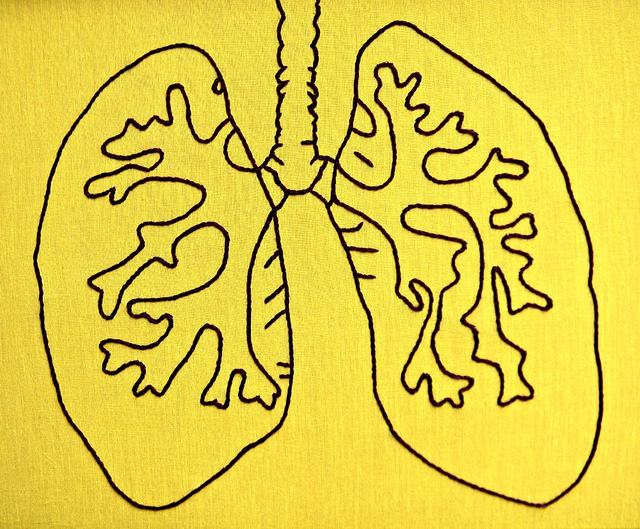Pneumonia is an infection in one or both of a person’s lungs caused by bacteria, viruses and fungi. People over 65 are at the highest risk. When symptoms are serious, it can take a long time to recover, especially for older people. So, it’s smart to take steps to reduce your chances of getting pneumonia.
Pneumonia symptoms include wet coughs, trouble breathing, fever and chills. They can be very mild or very serious. You also can feel very sick in your stomach or very tired. About one in five of people end up in the hospital.
Of the six million cases of pneumonia reported each year, about one million involve people who are 65 and older needing to be hospitalized. About 50,000 people die of pneumonia each year; nine out of ten of them (45,000) are over 65. Getting the pneumonia vaccine and appropriate treatment can prevent many of these deaths.
Here are four tips for lowering your chances of getting pneumonia, from the National Institute on Aging and National Institutes of Health.
- Get the pneumococcal vaccine. It is generally recommended for people over 65, people with chronic conditions and people who smoke. And, Medicare covers it in full. The vaccine lasts at least five years. While it does not prevent all cases of pneumonia, it still can reduce the severity of the illness.
- Wash your hands with soap and water or with alcohol-based wipes in order to kill germs, especially after you are out in public spaces.
- Keep your immune system strong. Get the rest you need, eat healthy foods (eating more plants can reduce your risk of Alzheimer’s) and exercise to stay healthy (for your bones and to reduce your risk of stroke.)
- Don’t smoke. Smoking reduces the ability of your lungs to filter out germs. Smoking also kills. But, it’s never too late to quit. And, quitting reduces your health risks, improving your blood pressure and circulation very quickly. If you’re ready to quit, Medicare covers smoking-cessation counseling.
If you are diagnosed with pneumonia, you will likely be prescribed a drug to treat it. Take the full course of treatment for the drug, as prescribed.
Here’s more from Just Care:
- If you want easy health care access and good quality care, you probably want traditional Medicare
- Get the preventive care you need: Medicare pays for it
- Four things to know if your income is low and you have Medicare
- How to get dental care if you have Medicare
- No projected increase in standard 2018 Medicare premium, but many still will see an increase











I did not realize that the pneumonia vaccine is good for just five years. Thank you for mentioning that. Also, I just read that the shingles vaccine is of questionable value after 2 or 3 years, as well. Will bring both of these up next time I visit my PCP.
There are two different pneumonia vaccines. Should you have both, or is just one OK? Is one better than the other?